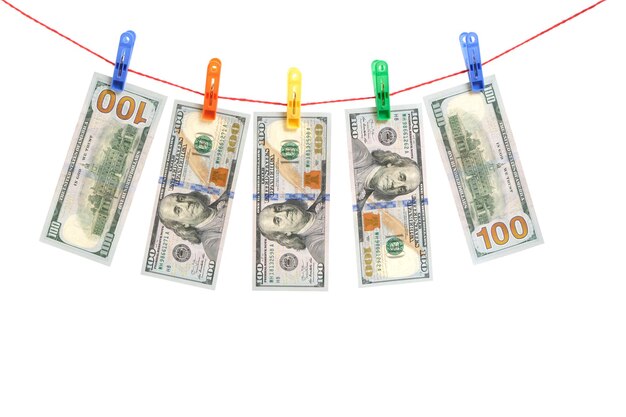Let’s talk about the notorious gangster Al Capone. Some say he coined the term "money laundering" by hiding his criminal profits through laundromats, which made lots of small, hard-to-trace cash transactions. While this is probably a myth, Capone did indeed launder money, moving it from illegal businesses into the legitimate financial system. This practice is still alive and well today among modern crime lords. But here’s the kicker: money laundering is a crime in itself. If a bank knowingly helps hide illegal profits, it’s as criminal as Capone’s legendary laundromats. Unfortunately, many major banks today are guilty of this.
Let’s look at some famous examples of money laundering over the last 50 years:
-
BCCI: The Bank of Credit and Commerce International was a global bank founded by a Pakistani businessman. In the 1980s, it did business with criminals worldwide, including dictators Saddam Hussein and Manuel Noriega, and members of Pablo Escobar’s Mexican drug cartel. The bank was involved in financing prostitution, terrorism, and arms dealing, including nuclear weapons. The illegal funds totaled billions of dollars, and BCCI used various methods to conceal them. The bank’s crimes were exposed during a 1990 financial audit, leading to its shutdown in 1991.
-
Nauru: This tiny island nation in the Pacific Ocean turned to wholesale money laundering in the 1990s after its phosphate mining industry collapsed. It handled money for multiple bad actors, including the Russian mafia and Al-Qaeda. The U.S. government finally managed to impose sanctions against Nauru in 2002, leading to the cleanup of its banking system by 2004.
-
Wachovia: In the early 2000s, this major U.S. bank processed at least $110 billion in drug money from 2004 to 2007. The money was laundered through a multistage process involving currency exchanges in Mexico and various transactions in the U.S. An investigation by the U.S. Drug Enforcement Agency exposed these crimes, leading to charges against Wachovia.
-
HSBC: In 2012, this international bank was charged with four felonies related to money laundering. It processed funds for rogue nations and drug cartels, concealing the origin of the funds and evading anti-money-laundering filters. Despite paying over $1.9 billion in penalties and agreeing to five years of independent monitoring, HSBC continued to accept shady transactions.
-
Standard Chartered Bank: This U.K.-based bank got into trouble over its poor anti-money-laundering practices in 2004. Despite promising to address the problems, it continued to make transactions with Iran in violation of sanctions. The bank paid over $1.1 billion in fines to U.S. and British regulators in 2019.
-
Liberty Reserve: This financial company in Costa Rica allowed people to send and receive payments anonymously using a virtual currency. It attracted criminals looking to hide their profits, leading to its shutdown in 2013 and the arrest of its founder and four employees.
-
Westpac: This Australian bank paid the largest corporate fine in the country’s history in 2020 for over 23 million violations of money-laundering and terrorism-financing laws. Some of the transactions were linked to possible child exploitation in southeast Asia.
-
Danske Bank: This Danish bank was involved in a scandal over suspicious transactions at its Estonian branch. It handled $230 billion in dirty money from Russia and other ex-Soviet countries over six or seven years. The bank’s CEO resigned in 2018, and several executives were charged with crimes.
-
FinCEN Files: In 2019, over 2,100 suspicious activity reports were leaked to BuzzFeed News, revealing money laundering within at least a dozen financial institutions. The dirty money was linked to a wide range of crimes, including corruption, embezzlement, sanctions evasion, fraud, drug trafficking, and terrorism.
These cases show that money laundering is a persistent problem. Fines aren’t enough to deter banks from laundering money, as they often treat them as a cost of doing business. If we want to stop money laundering, we need to get serious about punishing it. This could involve heavier fines, criminal penalties, breaking up the banks, seizing their assets, and sending their leaders to prison.
